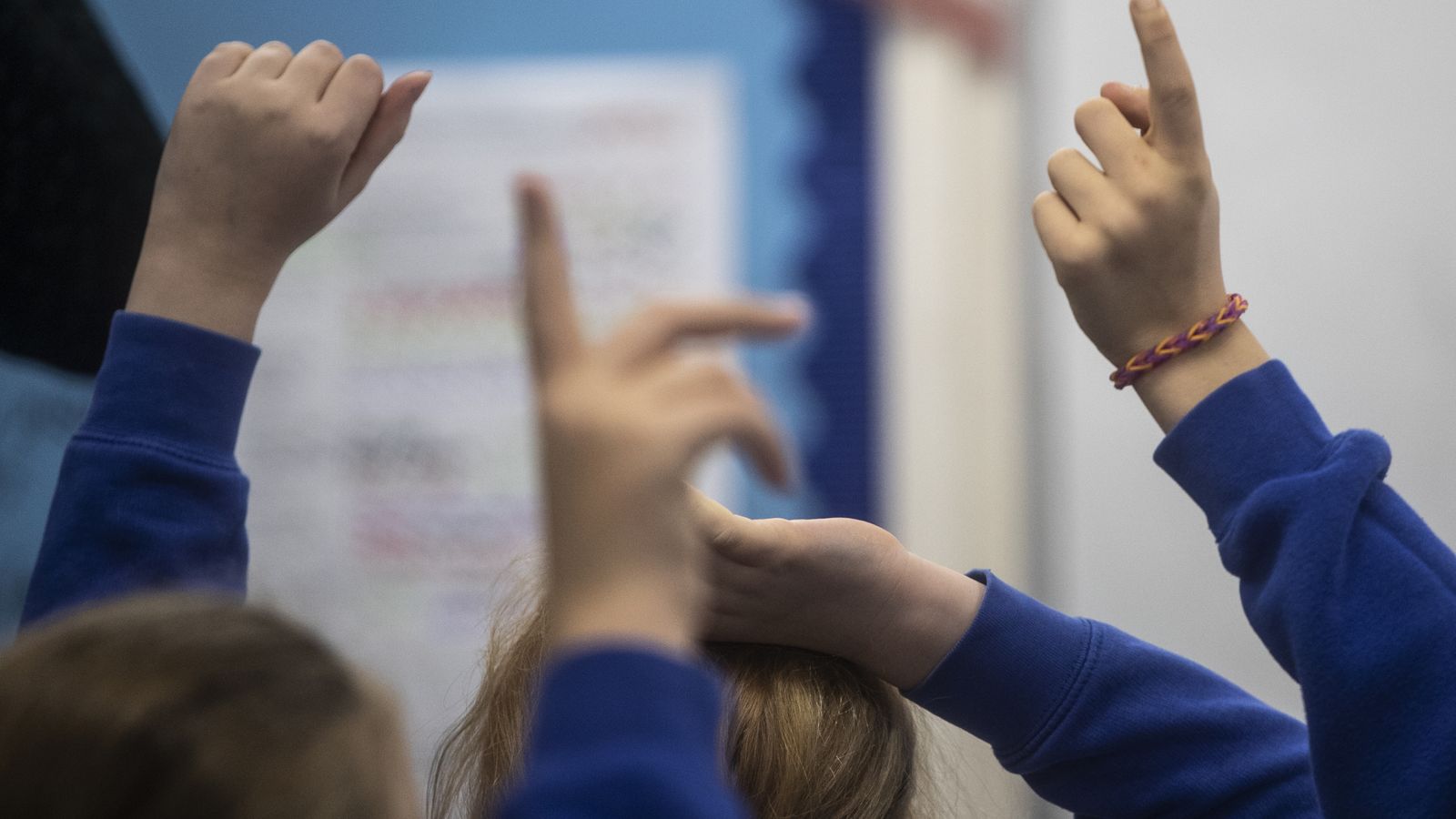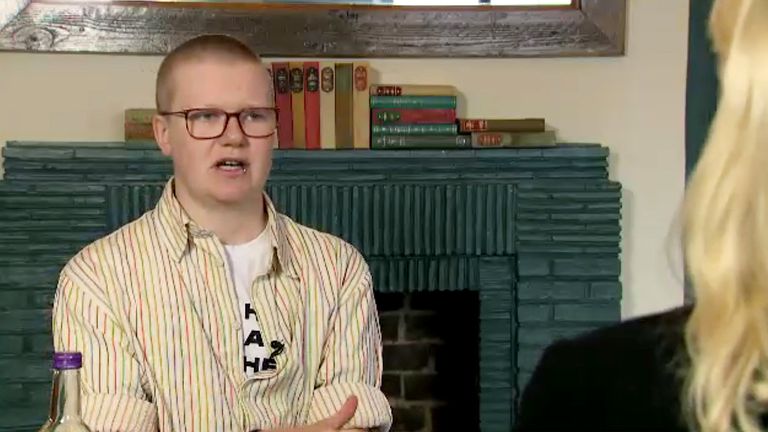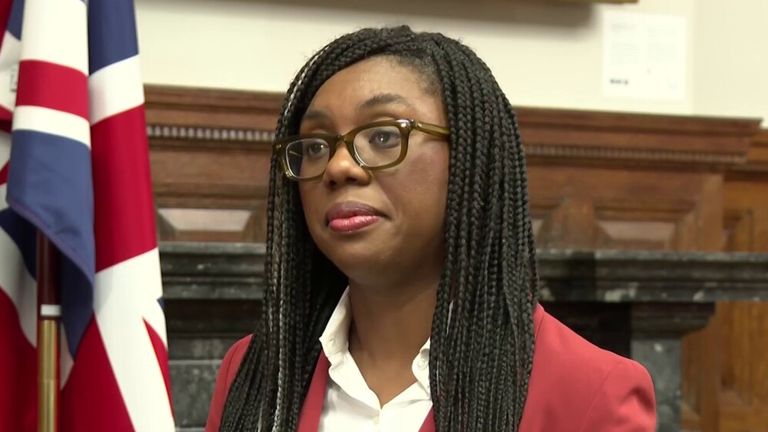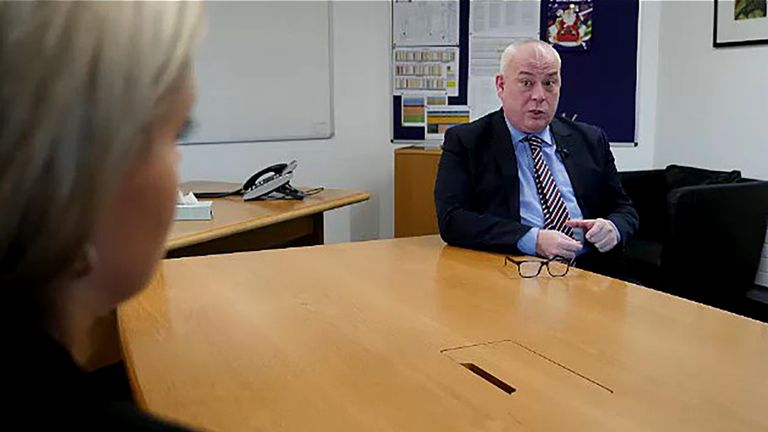Teachers don’t have to address pupils in chosen pronouns under government’s new schools transgender guidance


Teachers in England have been told they do not have to address pupils in their chosen pronouns under new government guidance on how best to support transgender students.
The draft document, released by the Department of Education, was meant to be published before the summer holidays, but was delayed to ensure it met the “high expectations” of teachers and parents.
It states that children, teachers or staff at a school should “not be required to adopt the use of preferred pronouns”.
In the absence of preferred pronouns, the child’s preferred name should be used, with schools having a duty to ensure bullying is never tolerated.
The guidance also states that schools and colleges do not have to, and should not, accept all requests for social transition.
Social transitioning relates to a pupil requesting to change pronouns, names and uniform.
Please use Chrome browser for a more accessible video player
2:16
‘I socially transitioned at school’
“Proper use of this guidance means social transition, in practice, should be extremely rare when the appropriate safeguards are put in place and the child’s best interest taken into account,” the draft states.
Where a school considers a request, the draft states a “cautious approach” should be taken, including ensuring parents are fully consulted before any decision is taken.
Other main points from the draft guidance include:
• Schools should make sure competitive sport is fair for all students, which will almost always mean separate sports for boys and girls;
• Schools must provide sex-separated toilets for students aged eight and over and suitable changing accommodation and showers for pupils aged 11 and over;
• Single-sex schools can refuse to admit pupils of the opposite biological sex, regardless of whether they are questioning their gender;
• A gender questioning child should wear the same uniform standard as other children of their sex;
• Sleeping arrangements like dormitories, tents and shared rooms should be sex separated.
Advertisement
The draft is non-statutory, with parents and teachers now urged to have their say in a 12-week consultation.
By Mollie Malone, news correspondent
The language on gender identity in schools is fairly tough, but it doesn’t massively change the status quo.
Much of the draft guidance issued by government, for schools and colleges in England, will still be down to the interpretation of individual teachers.
At the crux of this is how children who are questioning or wanting to change their gender, or express themselves differently by using different pronouns, uniforms, or appearances – known as socially transitioning – are supported and treated at school.
The advice to schools is that there is “no general duty” to allow them to permit social transitioning, that schools can “decline” an older child’s request to use a different pronoun.
“Schools and colleges should only agree to a change of pronouns… if they are confident that the benefit to the individual child outweighs the impact on the school community.”
Again – the decision is down to the discretion of the individual teacher.
Can, not should. No ‘general’ duty.
The guidance places heavy emphasis on parental involvement in any decision.
“Parents should not be excluded,” it says. This was to be expected. But the line between when and where a parent should be consulted is a slightly blurred one.
“Where a child requests action from a school or college in relation to any degree of social transition, schools and colleges should engage parents as a matter of priority… other than in the exceptionally rare circumstances where involving parents would constitute a significant risk of harm to the child.”
Who decides the ‘degree’ and harm? Many of these circumstances are ‘rare’ anyway. The transgender pupil population, while definitively unknown, is small.
For many schools and colleges, this will be welcome guiding principles which they’ve waited a long time for.
For politicians, among them former prime minister Liz Truss, who wants social transitioning in schools to be banned altogether – this won’t be anywhere as near as stringent as they think it should be.
Either way – this guidance, which is only guidance and not statutory – could end up leaving educators with more questions than they have answers.
On Tuesday, Education Secretary Gillian Keegan said the draft puts the “best interests of all children first, removing any confusion about the protections that must be in place for biological sex and single-sex spaces”.
She said it makes clear that safety and safeguarding for all children must always be schools’ primary concern.
Please use Chrome browser for a more accessible video player

1:22
Kemi Badenoch: ‘This is guidance schools have asked for’
Speaking to reporters, Kemi Badenoch, minister for women and equalities, added: “This is comprehensive guidance. It can’t be the case that teachers have a lot of leeway, and we’re also forcing them to tell parents.
“What we are doing is making sure that for those schools who are very confused about what to do, and are getting very bad advice from organisations like Stonewall among others, understand what the government believes should be done.”
Read more UK news:
Dame Esther Rantzen says she has joined assisted dying clinic
Police Scotland search for missing woman
Sculptor produces tiny three wise men in the eye of a needle
Paul Whiteman, general secretary of school leaders’ union NAHT said on initial look, the draft proposals “leave a lot of questions unanswered”, leaving school leaders in “incredibly difficult” positions.
He said the union will be reviewing the draft proposals and will submit a response to the government’s consultation on behalf of members.
Please use Chrome browser for a more accessible video player

2:05
‘Issue of gender has gone in our school’
Confederation of School Trusts chief executive Leora Cruddas, concerned at the timing of the release of the document, said: “This will make it very challenging to respond to any concerns felt by pupils, parents and staff until schools return in the new year.”
A spokesperson for Mermaids, a transgender youth support charity, said the guidance was “unworkable, out of touch and absurd”.
The spokesperson said: “Rather than listening to trans young people and reflecting best practice of inclusive educators across the UK, the Government has created more confusion for schools and is putting young people at risk.”
Teacher Tapp, a daily survey app, asked more than 7,000 teachers their view of the guidance before it was officially published.
The results were split into primary school and secondary school responses:
• 41% of secondary school teachers were concerned guidance could be more divisive than helpful;
• 10% said they would prefer to rely on their own current policy;
• 34% of secondary school teachers said they would appreciate the clarification it could bring;
• 15% were open to whatever is recommended.
Teachers were then asked to what extent the political conversation affected their work.
• 62% of secondary teachers and 76% of primary teachers said it has had no effect.
Teachers were allowed to answer more than one option in the first poll.
‘Does not go far enough’
But in an early indication of potential unease about the measures on the right of the Conservative party, former prime minister Liz Truss said the guidance “does not go far enough”.
She called for a change in the law rather than non-statutory guidance.
Ms Truss said: “I fear that activists and others will be able to exploit loopholes in the guidance and the existing legal framework to pursue their agenda, leaving children at risk of making irreversible changes and with single-sex spaces not sufficiently protected.”
The former prime minister called on government to back her Health and Equality Acts (Amendment) Bill, which she first put to parliament on 6 December.
Under the proposed bill, social transitioning would not be recognised by schools or the state in children, and puberty blockers and hormone treatment for gender dysphoria would be banned for under-18s.
Speaking ahead of the publication of the draft, the prime minister’s spokesperson said it was a “complex area” and it was right to “take the time to get this right”.